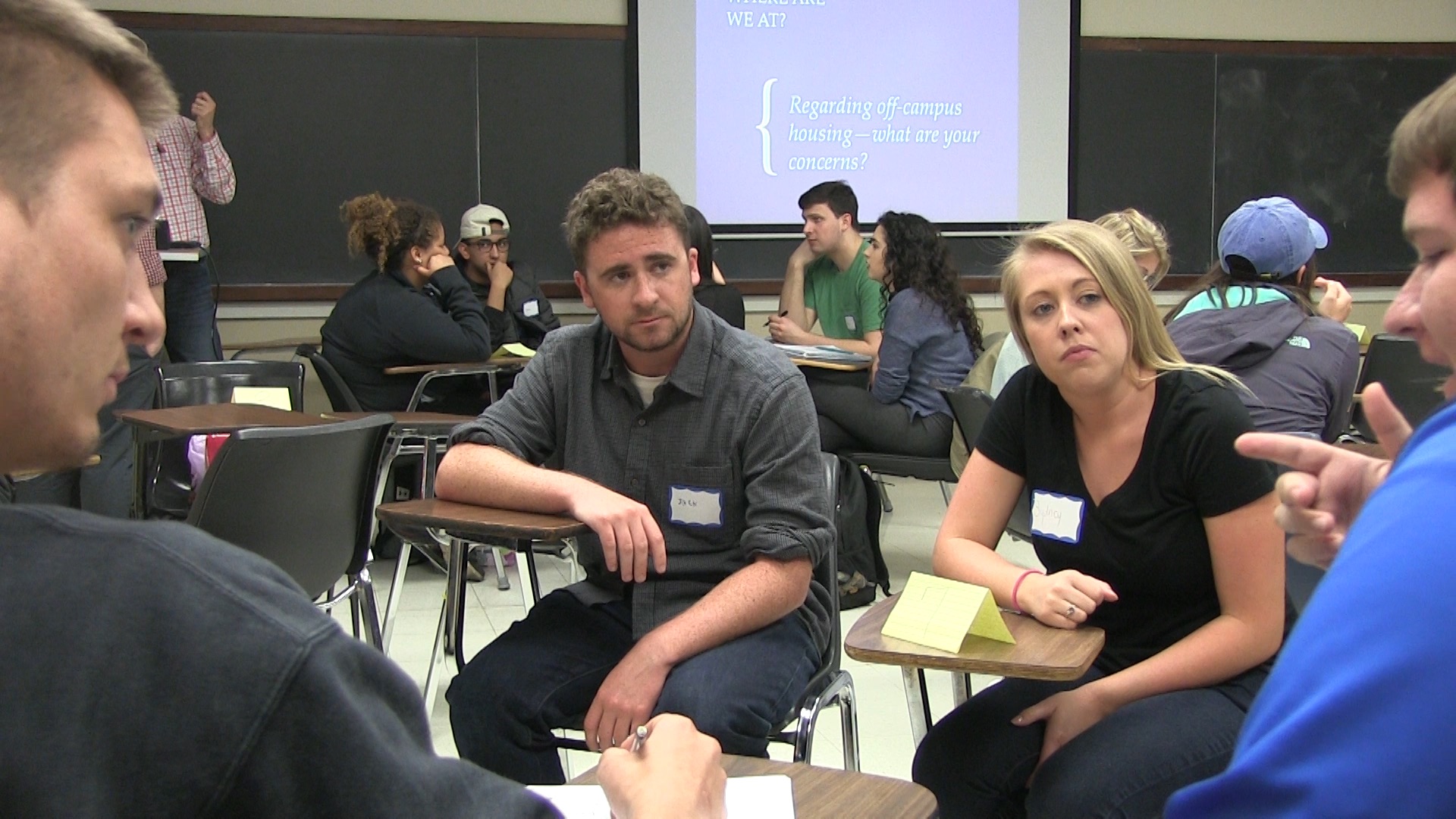How Can Students Get Involved?

1. Take COMM 1830: Solving Public Problems (Offered each Spring)
Citizens are increasingly facing a world with complex problems that demand public participation and decision-making. Offered each Spring semester, this course introduces students to the interdisciplinary field of dialogue and deliberation. Students learn theories and tools that help organizations and communities think through difficult issues in ways that are productive. Dialogue, deliberation, strategic planning, and collaboration are communicative skills that help people deal with complex issues by promoting understanding of multiple viewpoints of the issues, engaging in processes to facilitate choice-making and ways to act together to implement these decisions. Students will apply these skills in hands-on, outside-of-the-classroom public service experiences as part of the ongoing work of the University of Iowa’s Program for Public Life. As a class, we will research, plan, and facilitate public deliberative forums in partnership with local community organizations wanting to highlight public problems in need of greater community attention. Students will learn critical skills (writing for a general audience, facilitating dialogue, etc.) and gain valuable community service experiences as they are introduced to the interdisciplinary field of dialogue and deliberation.
Students who successfully complete this course will have the opportunity to continue work in the student associate program as public process facilitators in subsequent semesters to earn up to 9 practicum or internship credits.
2. Join the Student Associate Program
The work of the IPPL would not be possible without the stellar contributions of students who are part of the Student Associate Program (SAP).
The SAP is a practicum-based internship program that works around your regular class schedule. Participants will learn new skills and get real world practice applying them. Any student with who wants to serve their local community while gaining professional skills can apply.
Develop Professional Communication Skills While Serving Community Needs
Communication skills are at the heart of healthy communities. Students in the SAP will gain professional experience as they partner with on- and off-campus organizations to plan and convene public dialogue and deliberation events. Students will serve the needs of local communities by expanding civic capacity.
Students accepted into the program earn COMM credits (2828.0002) while acquiring a wide range of critical 21st century skills and experiences that will be applicable to many contexts, including facilitating collaborative problem-solving; public issue analysis and research; meeting design and convening; community organizing; and strategic communication. Student associates are treated as colleagues and collaborators for the IPPL, not simply as students. Students are involved in all aspects of the work, and have ample opportunities to take on significant responsibilities.
There will not be a regular classroom meeting for the SAP, so students can balance class and work schedules around their work with the IPPL. Student Associates will attend occasional workshops and work independently and with each other to research, convene, and facilitate community conversations. Students clock their work time and complete 130 hours, including workshops, research, reading, and events.
After their first semester in the SAP, students may continue in the program as Senior Student Associates to learn and apply more advanced professional techniques and take Project Lead positions.
How to Apply
Students with a B or better in Comm 1830 are automatically accepted into the SAP. All other students are invited to apply by emailing a resume and cover letter to the email address below. Cover letters should address your interest in civic engagement and public dialogue and deliberation.
What Are Student Associates Saying?
- "Lending a helping hand... to people in the area is an extremely gratifying experience."
- "It was refreshing to see concerned citizens come together to express their ideas."